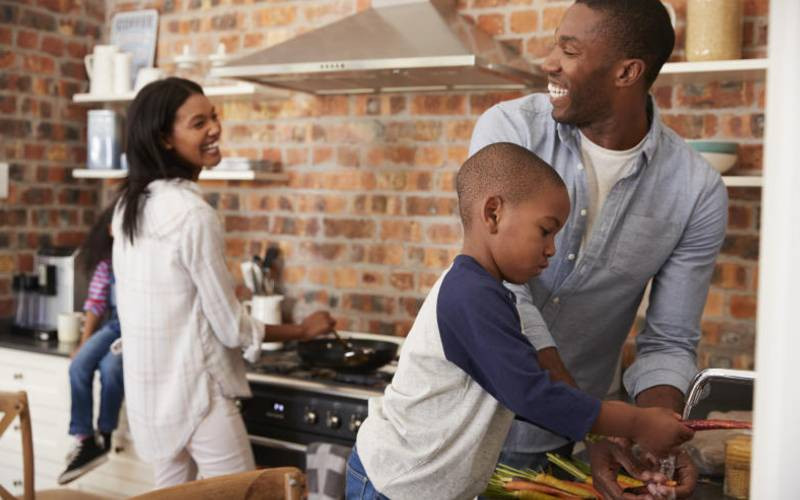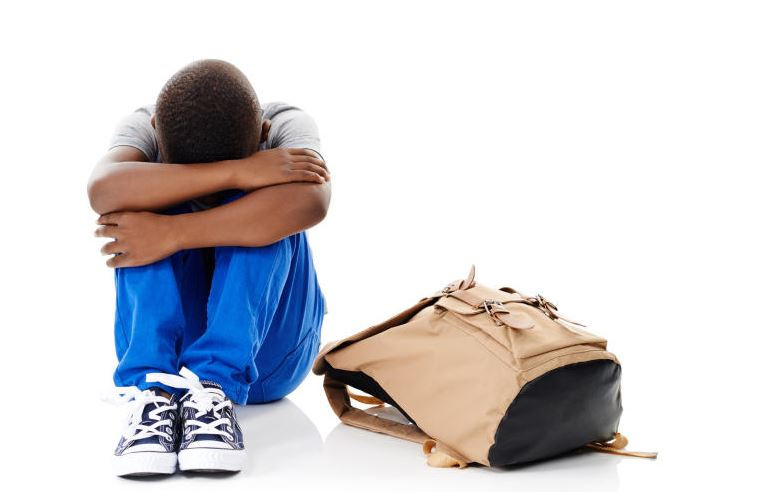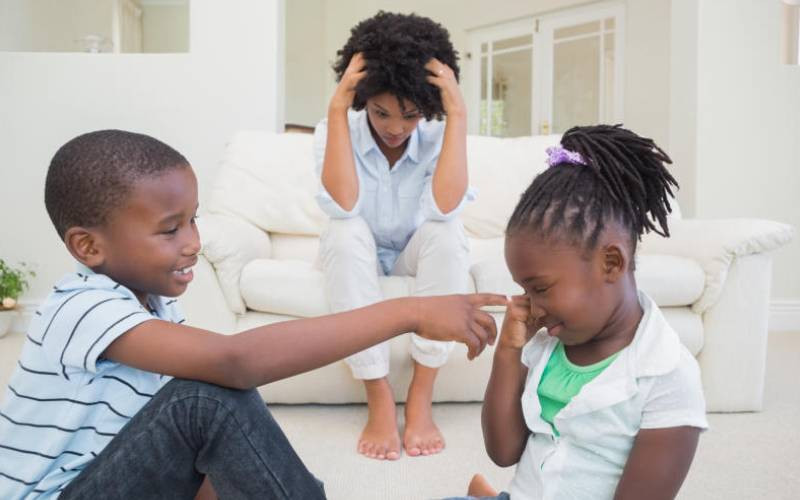
Potty-training does not necessarily mean the end of bed-wetting, and, for some, the problem persists into their teens.
For the parents of these kids who wet the bed, the battle to eradicate night-time bed-wetting can be fraught, and requires patience, empathy and understanding.
This is where Alicia Eaton can help.
Eaton is a Clinical Hypnotherapist and Advanced Practitioner of NLP (neuro-linguistic programming) who has worked with children who wet the bed since 2004 and published her first book on the subject in 2009.
Where she has succeeded is by using often-ignored methods which have been described as "alternative" - not that that has hampered her success.
Eaton has helped many families banish bedwetting with the plan laid out in 'Stop Bedwetting In Seven Days'.
While it helps to read the book and get to know what's expected of you and your child, here are her 19 golden rules.
1. Pick your moment
It's as much about your child being ready to address the issue and move on as anything else.
Alicia advises choosing the week you start the process very carefully, and avoid busy weeks where they may have tests or exams.

2. Keep a diary
By keeping a diary you'll get to know your child's behaviour patterns. The kind of information Alicia says is useful to know is:
How many times did your child wet last night? At what time? What kind of day had it been? Was it a busy day at school or perhaps slightly less regimented because of school holidays? Had your child had extra sport and become dehydrated? Was there lots of homework or anxiety caused by school tests the next morning? Was it a late night following a friend's birthday party? What did your child eat? And how about drinks?At this stage you're basically a detective trying to understand your child's problem as much as possible.
3. Clear away your clutter
Confidence often underlies the issue of bed-wetting.
Also, as Alicia points out, during this process your child will hopefully be running to the loo in the middle of the night, so keep their route clear to enhance their confidence in making this trip.
A cluttered, disorganised room will reflect your child's cluttered, disorganised mind and this is not going to help.
Ask them to clear the room in a positive way, tell them what you do want rather than what you don't.

4. Review the lighting
One thing which Alicia hears often from children is that they would visit the bathroom more at night - if it wasn't so dark.
What parents can do to help is keep the route to the bathroom well-lit, but not so much that is disturbs their sleep.
Try a bedside potty if your child is really too frightened to leave their room at night.
5. Child-friendly bathroom
Make sure the bathroom is as child-friendly as possibly, try placing things at child level. This will help the child feel that the space belongs to them as much as it does you.
6. Two loo trips before bed
Try to get your child to go to the toilet twice just before going to sleep so they fully empty the bladder before settling down.
7. Programming their brains to wake up
Alicia has met many parents who've insisted their kids are such deep sleepers, they've not realised they were lying in a wet bed, but have the admitted this may not be the case.
So she tells some parents: 'Beware of the self-fulfilling prophecy.' Hearing this over and over may make the child think they actually will sleep through the wetting.
If they can program their brains to wake up early on Christmas, they can do it for when they wet the bed.

8. It's not necessarily a family trait
While there might be a genetic link, interestingly, Alicia has found that there's far more bedwetting children without a family history than children with.
She once again warns about self-fulfilling prophecy playing a part here.
The child's self-image is going to be affected if all these bedwetting relatives start piping up and talking about their experience.
9. Don't restrict fluids
Alicia says she is not in favour of restricting fluids in young children.
During summer, kids need to drink more and this is to be encouraged. But what parents should do is encourage them to sip their drinks in the evening.
Some children also find that they wet more after drinking sugary, fizzy drinks. Stick to plain water wherever possible, but don't make a big deal of it.
10. Diet may have an effect
What you eat affects your bladder.
For example, water fruit and veg (think, strawberries and melons) have a diuretic effect - which is what makes you need the loo more. So avoid these as dessert or an evening snack.
Wheat can inflame the bladder and also make you feel the need to pee more, so keep an eye on your child's diet for a couple of weeks.
Other food substances to monitor are artificial sweeteners and milk.

11. Constipation
An overly full bowel will rest against the bladder and encourage it to empty. Again, this may link to diet or the fact that a child may not want to admit they are constipated. Find out and work on it.
12. Reduce screen time
Experts agree that sleeping in an electromagnetic field doesn't result in a restful sleep.
Likewise, staring at a screen before sleep doesn't help either. To increase the hormone melatonin that aids sleep, make sure your kids take a break from screen time a good while before they settle down.
13. Be positive for them
Praise your child regularly and be sympathetic when they have an accident. Take the initiative with the issue or it could persist for years.
Trust your child's ability to work through this problem, they will encounter disappointments but stick with it.
14. Bin the night nappies
It might sound counter-intuitive, but these can block signals that travel from the bladder to the brain.
Health professionals agree that it's time to ditch them around age six. From then on, it's better for your child to feel the wetness and deal with it.
Alicia recommends ditching them on day five of her program - forever.

15. Let them sleep
By trying to wake them up from sleep to have a wee, you could be making the problem worse.
16. Be prepared with protection
Have plenty of spare sheets and bedding as well as a protective cover for the mattress.
There are many products and items that can be used to make sure the problem is dealt with quickly to minimise disruption to sleep.
17. Don't punish them and don't reward them
Punishments won't work, but Alicia isn't in favour of rewards either because when children expect rewards they can perform worse.
Encouragement to keep your child going towards the end goal instead of a reward per say is going to increase their chances of getting there.

18. Be careful with how you praise them
If you use strong words like "brilliant" and "fantastic", these will eventually lose their meaning, so make your focus on praising their effort and intention.
Alicia recommends using sentences such as:
"You've been remembering to..."
"I hear you..."
"I've noticed..."
19. Share the load
A child will often do stuff for a teacher or other caregiver and won't do for a parent, so enlist someone else to help share the load with you.
 The Standard Group Plc is a multi-media organization with investments in media platforms spanning newspaper print
operations, television, radio broadcasting, digital and online services. The Standard Group is recognized as a
leading multi-media house in Kenya with a key influence in matters of national and international interest.
The Standard Group Plc is a multi-media organization with investments in media platforms spanning newspaper print
operations, television, radio broadcasting, digital and online services. The Standard Group is recognized as a
leading multi-media house in Kenya with a key influence in matters of national and international interest.










